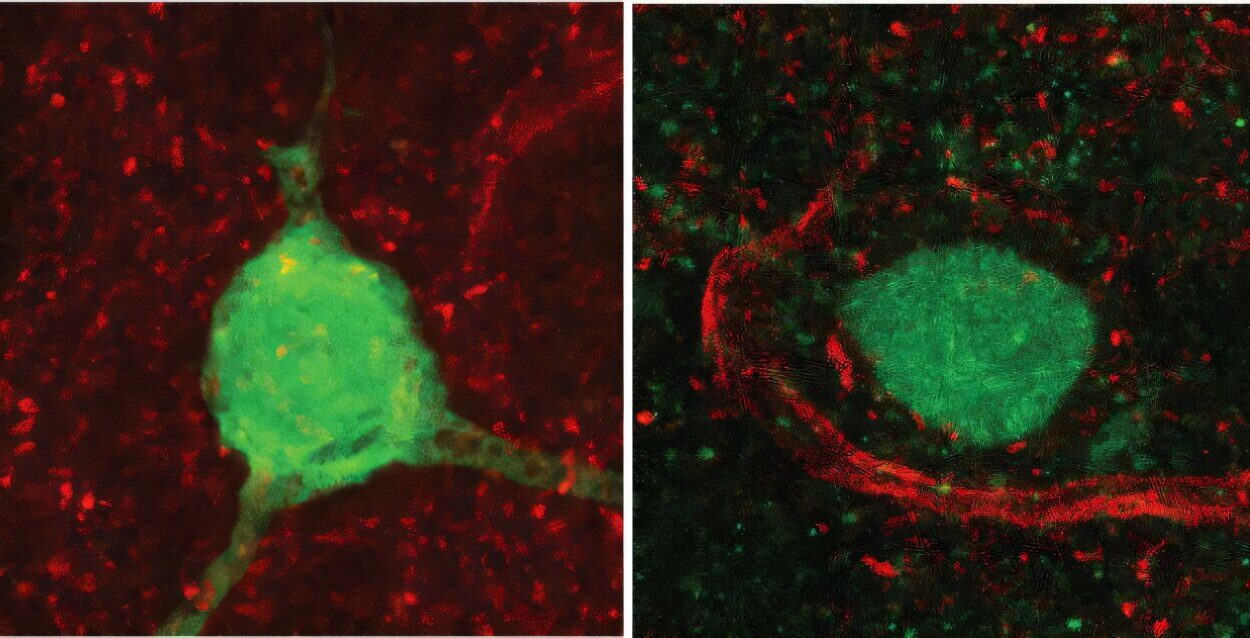Sleep is one of the most powerful, mysterious, and essential processes of human life. While we spend nearly one-third of our lives asleep, it is only in recent decades that science has begun to uncover just how vital sleep truly is for our bodies and minds. We live in a world that often glorifies busyness, where sleep is sacrificed in the name of productivity. But research shows that depriving ourselves of sleep doesn’t just make us tired—it impacts nearly every aspect of our health, from the way our brains process emotions to how our immune systems fight disease.
Sleep is not wasted time; it is active, dynamic, and restorative. During sleep, the brain clears toxins, the body repairs tissues, memories consolidate, and hormones rebalance. Without enough of it, even the strongest body and sharpest mind begin to falter. Sleep is as essential as food, water, and oxygen.
In this article, we’ll explore the 10 most important benefits of sleep according to science, diving into how it affects our physical health, mental well-being, and overall quality of life. Understanding these benefits may not only change how you view sleep but inspire you to protect it as the sacred health tool it truly is.
1. Sleep Boosts Memory and Learning
One of the most remarkable benefits of sleep is its role in strengthening memory and enhancing learning. When we are awake, our brains are constantly bombarded with new information. But during sleep—particularly in the stages of deep sleep and REM (rapid eye movement) sleep—the brain actively organizes, processes, and consolidates those memories.
Scientists describe this as “memory consolidation.” Sleep acts like a filing system, taking short-term memories from the hippocampus and transferring them to long-term storage in the neocortex. This process ensures that what you learn during the day is integrated and retained.
Studies have shown that students who get enough sleep perform better on tests, musicians solidify their practice through sleep, and athletes sharpen their skills after a good night’s rest. Without adequate sleep, the brain struggles to retain new information, making learning less effective.
Sleep doesn’t just help us remember facts—it also enhances creativity. During REM sleep, the brain makes unexpected connections between ideas, leading to problem-solving insights and creative breakthroughs. This is why many artists, inventors, and scientists throughout history have credited dreams and restful sleep for their innovations.
2. Sleep Strengthens the Immune System
When you sleep, your body’s defenses are hard at work. Research shows that sleep is a critical time when the immune system produces and releases important proteins called cytokines, which help fight infection and inflammation. Sleep also boosts the production of antibodies and immune cells, making you better prepared to battle viruses and bacteria.
A striking study found that people who slept fewer than seven hours a night were nearly three times more likely to catch a cold than those who got eight or more hours. This shows how even mild sleep deprivation can leave the body more vulnerable to illness.
Sleep is also crucial for vaccines to be effective. When well-rested, the immune system produces a stronger response to vaccinations, creating longer-lasting protection.
Without enough sleep, the immune system becomes weakened, leaving the body more prone to infections and slower to recover from illnesses. Simply put: if you want to stay healthy and resilient, prioritize your sleep.
3. Sleep Enhances Brain Health and Detoxification
One of the most exciting discoveries in sleep science is the role of sleep in clearing toxins from the brain. During deep sleep, the brain activates the glymphatic system, a waste clearance system that removes harmful proteins and metabolic byproducts that accumulate while we are awake.
Among the toxins cleared is beta-amyloid, a protein strongly linked to Alzheimer’s disease. Studies suggest that poor sleep, especially chronic sleep deprivation, leads to the buildup of beta-amyloid, increasing the risk of dementia.
Sleep acts like a nighttime cleaning crew for the brain, flushing out harmful waste and allowing neural networks to reset and repair. This process not only protects against neurodegenerative disease but also keeps the brain functioning sharply day-to-day.
Think of sleep as a “reset button” for the brain, ensuring clarity, focus, and protection against long-term damage.
4. Sleep Improves Emotional Well-Being
We all know the feeling of being cranky, moody, or irritable after a sleepless night. That’s not just in your head—sleep has a profound effect on emotional health.
During sleep, especially REM sleep, the brain processes and regulates emotions. The amygdala, a brain region involved in fear and stress responses, becomes less reactive after good sleep. Without sleep, however, the amygdala can go into overdrive, making people more emotionally unstable, anxious, or prone to overreacting.
Studies have shown that sleep-deprived people are more likely to interpret neutral events negatively, struggle with empathy, and experience heightened stress. Chronic sleep deprivation is also linked to mood disorders like depression and anxiety.
On the flip side, getting enough quality sleep helps stabilize mood, improve resilience to stress, and boost overall emotional intelligence. Sleep quite literally helps us wake up on the “right side of the bed.”
5. Sleep Supports Physical Health and Repair
Sleep is the body’s natural repair shop. While we rest, tissues are rebuilt, muscles recover, and vital processes restore balance. This is especially important for athletes, but it matters for everyone.
Growth hormone, which is essential for tissue repair and muscle development, is released primarily during deep sleep. This hormone helps heal injuries, rebuild muscles after exercise, and maintain healthy bones.
Lack of sleep has been shown to impair wound healing, slow down muscle recovery, and increase the risk of physical fatigue. In contrast, proper sleep allows the body to recharge physically, preparing you for the challenges of the next day.
Sleep is also vital for heart health. Blood pressure drops during sleep, giving the cardiovascular system a chance to rest. Chronic sleep deprivation is associated with hypertension, heart disease, and stroke. Protecting your sleep means protecting the most vital organ of all—the heart.
6. Sleep Helps Maintain a Healthy Weight
Surprisingly, sleep plays a major role in weight regulation. People who don’t get enough sleep are more likely to gain weight and struggle with obesity. Why? Because sleep influences the hormones that control hunger and appetite.
Two key hormones are involved: ghrelin, which stimulates appetite, and leptin, which signals fullness. When sleep-deprived, ghrelin levels rise while leptin levels fall, making you hungrier and less satisfied after eating. This hormonal imbalance can lead to overeating, cravings for high-calorie foods, and weight gain.
Sleep deprivation also reduces insulin sensitivity, making it harder for the body to regulate blood sugar levels. Over time, this increases the risk of type 2 diabetes.
Getting adequate sleep, therefore, is not just about energy—it is a fundamental part of metabolic health and weight management.
7. Sleep Boosts Productivity and Cognitive Performance
Sacrificing sleep to get more work done might feel productive in the short term, but in reality, it backfires. Sleep is directly linked to performance, focus, and problem-solving abilities.
When well-rested, the brain is sharper, quicker, and more accurate. Sleep enhances attention span, decision-making, and complex thinking. On the other hand, sleep deprivation has been compared to alcohol intoxication in its effects on reaction times and judgment.
A lack of sleep also impairs communication and teamwork, making people more prone to misunderstandings and errors. For professionals, students, and athletes alike, prioritizing sleep is one of the most effective ways to improve performance and productivity.
8. Sleep Strengthens the Heart and Reduces Disease Risk
Chronic sleep deprivation has been linked to serious health risks, including heart disease, stroke, diabetes, and certain cancers. One of the strongest connections is between sleep and cardiovascular health.
When we sleep, blood pressure naturally dips, reducing stress on the heart and blood vessels. Insufficient sleep disrupts this cycle, keeping blood pressure elevated and increasing the risk of hypertension. Sleep also affects cholesterol levels, inflammation, and blood sugar regulation—all critical factors in heart health.
Long-term studies show that people who regularly sleep fewer than six hours a night have a significantly higher risk of heart attack and stroke. Protecting your sleep isn’t just about feeling good—it’s a matter of life and longevity.
9. Sleep Enhances Creativity and Problem-Solving
Sleep does not simply “shut down” the brain—it actually enhances its ability to solve problems and think creatively. During REM sleep, the brain replays experiences, makes new connections, and integrates information in ways that aren’t possible during wakefulness.
This is why people often wake up with solutions to problems they couldn’t figure out the night before. Some of history’s greatest scientific breakthroughs, works of art, and inventions were reportedly inspired by dreams or insights gained after rest.
Research shows that people perform better on creative problem-solving tasks after a full night’s sleep compared to those who stay awake. Sleep provides the brain with a unique state of processing that fosters innovation, insight, and new perspectives.
10. Sleep Extends Lifespan and Improves Quality of Life
Perhaps the most compelling benefit of all is that sleep can help you live longer—and live better. Chronic sleep deprivation is linked to shorter lifespans, while consistent, quality sleep is associated with improved longevity.
This isn’t just about adding years to life but about adding life to years. People who prioritize sleep enjoy better health, sharper cognition, stronger immunity, healthier hearts, and improved emotional well-being. They are more energetic, more resilient, and more capable of enjoying the fullness of life.
In essence, sleep is not just a biological necessity but a foundation of vitality. Protecting it means protecting your future self.
Conclusion
Sleep is not a luxury, nor is it an inconvenience. It is one of the most powerful natural healers we possess. From memory to immunity, from emotional balance to creativity, from heart health to longevity, the benefits of sleep touch every part of our existence.
Science has made it clear: when we give sleep the respect it deserves, we unlock our fullest potential as humans. The next time you consider cutting your sleep short, remember that you are not gaining time—you are losing health. True productivity, happiness, and vitality begin not with more hours awake, but with better hours asleep.






